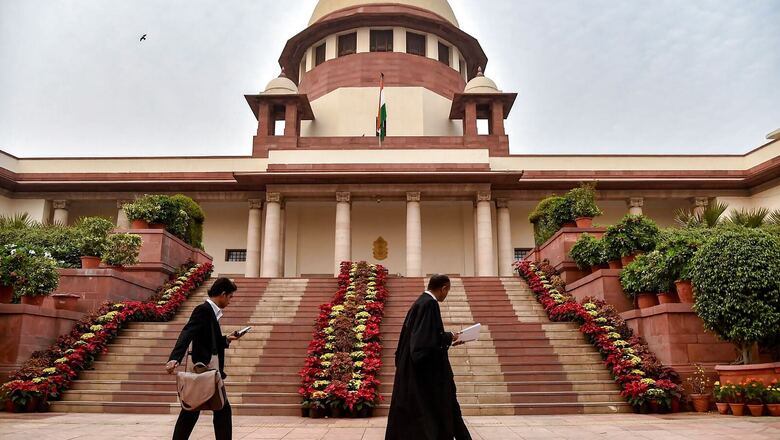Let's Talk Law | SC Collegium Hits Back at Govt on Appointments, But Run-in over Reforms No Solution

views
When the Vice President of India, Jagdeep Dhankhar waded into the controversy of judicial appointments, it was an escalation to another level. He called into question the doctrine of “basic structure”, based on which the proposed National Judicial Appointments Commission (NJAC) was struck down by the Supreme Court in 2015. The statement by the Vice President came after a series of attacks from the law minister on the present collegium system of appointment of judges. After this, a counter from the most powerful corridors of the judiciary was only expected.
Judges don’t have the liberty of giving soundbites to the media to generate public opinion in their favour. They speak through their judicial pronouncements or —like this time— through their collegium resolutions. The Supreme Court schooled the government on free speech and gay rights in the reassertion of three key names by the collegium— Saurabh Kirpal, Somasekhar Sundaresan, and R John Sathyan for appointment at the Delhi High Court, Bombay High Court, and Madras High Court respectively.
It is unprecedented for the collegium to lay bare the objections of the government or the Intelligence Bureau (IB) inputs in the public domain through collegium resolutions. The decision to make these details public requires decryption. The three collegium resolutions substantiate that the government has withheld the elevation of Saurabh Kirpal, not because of some serious concerns, but because the government does not want a homosexual judge on the bench at any High Court. The collegium resolutions also say that statements made by the lawyers in the public domain which are critical of the government stand in the way of their elevation despite the individuals having integrity and merit to be a judge.
These resolutions enjoin the voices that have argued that a powerful executive will usurp the independence of the judiciary and the government shall only appoint judges who speak in its favour. The fear and the collective trauma of the Emergency era during the tenure of Indira Gandhi and how the independence of the judiciary was muzzled are all-pervasive in over 1,000 pages of the NJAC judgement. The judiciary has not forgotten the painful lessons. The collegium resolutions, by deduction, point to vacuous objections by the government.
The last such stand-off was witnessed back in 2018 when the collegium reiterated the name of Justice KM Joseph, who had struck down the imposition of President’s rule in Uttarakhand, which came as a setback to the Centre. The collegium prevailed, and Justice Joseph was appointed, but the delay compromised his seniority in the Supreme Court, which is decided based on the date of the appointment to the apex court. Perhaps the collegium will once again prevail in the case of Saurabh Kirpal and other judges.
We are quick to jump for cheering or condemning either the government or the Supreme Court collegium. There are galleries for each side in this contest of judicial appointments with their own interest. No doubt, the Supreme Court collegium has stood up to powerful governments on various occasions and insisted upon the appointment of judges who may not be very popular with the government. But will the Supreme Court collegium ensure that each recommendation and reiteration is put out in the public domain with its reasons? Or will this approach be adopted by cherry-picking certain cases?
The attacks and counterattacks are best left to the politicians. The serious issue of reform within the collegium should not be lost in the cheerleading of either side or in the larger cacophony of soundbites.
Read all the Latest India News here




















Comments
0 comment